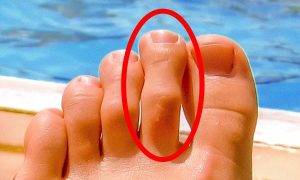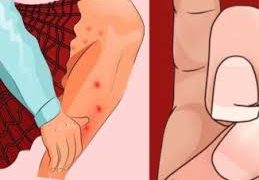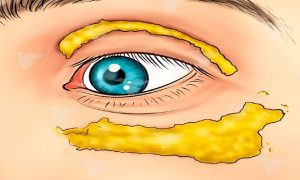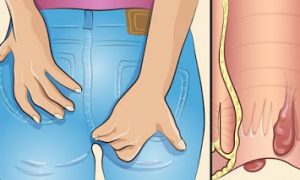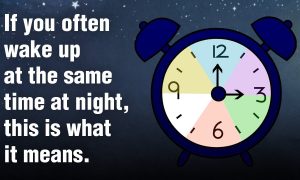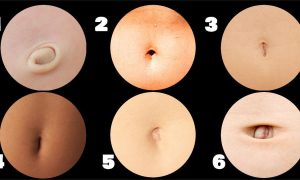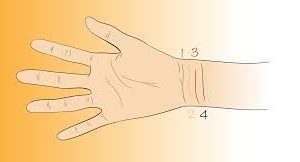We all have headaches. Some people have them when they are tired, some people if they don’t sleep enough, some people have headaches if they didn’t drink enough water that day, etc. Did you know that headaches are one of the main reasons why people miss days at work or school or visit a doctor? According to the latest statistics, provided by the National Headache Foundation, more than 28 million Americans suffer from migraines alone. And that’s a big number – don’t you agree? As we said, there are many different causes for headaches, from the cold to premenstrual syndrome, it can be difficult for sufferers to understand what kind of headache they are experiencing and how to manage their condition. The most common headaches are caused by these common reasons: vascular problem (high blood pressure, toxic overload, etc.), muscle contractions (tension, stress, etc.) and inflammation (infection).
- TMJ Headache
Temporomandibular Joint headache or TMJ headache is usually caused by problems with the jaw, jaw joint and lower facial muscles. You should know that this can be due to teeth grinding or clenching, tension in the jaw, dislocation of the jaw joint and arthritis. But, the bad thing about this headache is that the pain doesn’t just occur in the jaw, it can also spread upwards towards the cheeks, temples and ears or downwards to the neck and shoulder.
- Sinus Headache
Well, the name says it all. A sinus headache usually occurs when sinuses become inflamed or blocked. You should know that this can cause pain behind the cheeks, nose and eyes that gets worse when your bend forward or when you wake up. The most common causes are: allergic reaction, a tumor, or an infection. Depending on its underlying cause, symptoms can closely resemble those of a migraine.
- Cluster Headache
Have you ever heard of cluster headache? Well, if you haven’t, then you should definitely read this – a cluster headache is a sharp, very painful headache that occurs on and off several times a day for months followed by headache-free periods lasting up to 6 months. Well, the pain arrives with little warning and typically affects only one side of the head, often accompanied by a bloodshot eye and runny nose. The most common affected areas are: above the eye and near the temples. You should also know that these headaches typically last less than an hour and came about at the same time every day.
- Tension Headache
Tension headache is usually caused by these two simple reasons: stress and anxiety. As muscles tighten in your shoulders, neck and jaw, the headache tends to cause pressure, pulling and contractions that affect your temples, face and scalp. Tension headache can last between a few minutes to a few days. Triggers include lack of sleep, missed meals, stressful situations, high emotions and alcohol.
- Neck Headache
This headache is also known by the name cervicogenic headache. And neck headaches don’t actually affect your head. But, even though the pain occurs in your neck and shoulder blades, you may perceive it as originating in the back of your head or at the base of your skull. So, the medical experts claim that the best way to get rid of this headache is to fix the underlying cause, whether it’s a pinched nerve, muscle knots, muscles damage, abnormal bone growths, tumors, tissue swelling and joint problems. Relief can be found through massage, acupuncture, physiotherapy and chiropractic treatment.
- Migraine
What’s a migraine? Well, migraines are severe throbbing or a pulsing sensations that are often accompanied by nausea, vomiting, and sensitivity to light and noise. These often occur anywhere for minutes to hours at a time. Some people may experience visual hallucinations like an “aura”, dots or flashing lights, disruptions in smell, touch and taste or numbness. After they subside, migraines often leave the sufferer feeling tired or unable to concentrate.When to Talk to You DoctorThe Nation Health Institute warns that a headache can be a sign of something more serious, such as:
- If you are bleeding in the area between the brain and the thin tissue that covers the brain
- If you have high blood pressure
- If you suffer from brain infection, such as meningitis or encephalitis, or abscess
- Brain tumor
- Buildup of fluid inside the skull that leads to brain swelling (hydrocephalus)
- Buildup of pressure inside the skull that appears to be, but is not a tumor
- Carbon monoxide poisoning
- Sleep apnea
- Problems with the blood vessels and bleeding in the brain, such as arteriovenous malformation (AVM), brain aneurysm, or stroke
If you experience any of the symptoms mentioned below, seek medical assistance immediately:
- If your headache comes on suddenly and is explosive or violent.
- If you think that this headache is “the worst ever,” even if you regularly get headaches.
- If you experience slurred speech, a change in vision, problems moving your arms or legs, loss of balance, confusion, or memory loss with your headache.
- If your headache gets worse in the next 24 hours.
- If you have a fever, stiff neck, nausea, and vomiting with your headache.
- If your headache occurs with a head injury.
- If your headache is severe and just in one eye, with redness in that eye.
- You just started getting headaches, especially if you are older than 50.
- Your headaches are associated with vision problems, pain while chewing, or weight loss.
- You have a history of cancer or immune system problem (such as HIV/AIDS) and develop a new headache.
Home RemediesAs we said, ibuprofen shouldn’t be your first option. But, most people rely on headache medication to get through a bad migraine, these drugs can actually cause “rebound headaches”, which means that regular use of these medication can actually begin to trigger headaches.If you suffer from chronic headaches, here are a few natural solutions that will provide you with lasting relief:
- Himalayan salt
- Ginger tea
- Lavender lemonade
- Vitamin B2
- Magnesium
You should also know that you can get rid of headache fast, just by drinking a tall glass of water and resting in a quiet, dark room with a cool cloth on your head. And if you want to prevent headaches, then you should have a headache diary. Note: make sure to write the time and day when your pain began and ended, what you ate and drank in the 24 hours before your symptoms, how much you slept the night before and what you were doing and thinking when the pain began. This will help you identify your headache patterns and help you manage and predict future headaches. And if you experience more severe headaches, then you should consult your doctor immediately. We really hope you enjoyed this article and don’t forget to share it with your friends and family. Thank You.



